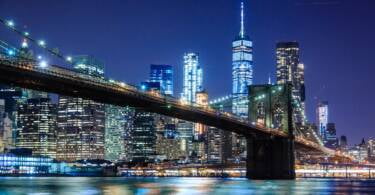Traveller versus tourist. The debate has been raging for years, but is such a distinction between the two valid anymore?
We’re all familiar with the stereotypical image of a tourist. Hawaiian shirts and Bermuda shorts topped off by the ever-faithful socks and sandals combo. They pile out of big tour buses in teeming hordes, snap pictures in front of everything, flock to the nearest McDonalds so they don’t have to eat “weird food” and ruin the place in an instant. They tick of their attraction checklist and pick holidays from a brochure. No one wants to admit to being a tourist.
Quite the opposite, apparently, are the travellers. Rather than seeing the country through a camera lens, they take the time to really experience the culture. They explore, learn and interact with locals. They have the freedom to wander and are open-minded. They want a life-affecting experience and a break from home comforts. They’re the ones with backpacks and just enough underwear to see them through the week. Travellers are the object of envy.
According to Daniel Boorstin (an American writer), “the traveller was active; he went strenuously in search of people, of adventure, of experience. The tourist is passive; he expects interesting things to happen to him. He goes ‘sight-seeing.’”
The tourist, reckoned Evelyn Waugh, was “a comic figure, always inapt in his comments and incongruous in his appearance.” It seems everyone wants to be a traveller.
Last year, G Adventures launched their You’ll Never Forget It campaign, with the tagline “Tourist season is over. You’re not a tourist, so why travel like one?” According to them, it is time to join the movement to take travel back from the cookie-cutter crowd.
Ok, so we all may have our gripes about these tourists, but are they really worthy of all this ridicule? We laugh about tourist stereotypes, but what about the drunken hordes of backpackers littering the beaches during a Full Moon Party? Hardly a respectable image. One commenter on the Telegraph website even believes travellers are the ones who deserve a good once over: “a traveller is an arrogant prat who does exactly the same things as a tourist but with a smug, condescending and patronising approach to everyone he/she meets.”
In fact, according to the dictionary, a traveller and a tourist are pretty much the same thing—they both travel for pleasure. So why does it have to be one or the other? We are all attracted to destinations for the same reason; we want to see the world and experience something completely different. Don’t ‘travellers’ marvel just as much as the craziness of Bangkok, visit the Grand Canyon, dive the Great Barrier Reef or visit the Great Wall of China? But these typical tourist attractions are popular because they are a significant icon, are rich in history and have fantastic stories to tell. Why miss out on that just to avoid the ‘tourist’ brand?
The issue of responsible tourism is the issue of a whole different debate, but at least the income generated by tourism can keep these places preserved for years to come, and can, in many cases, help the local economy and provide employment opportunities. Isn’t this just the thing travellers are supposed to be gunning for?
At the end of the day, ‘traveller’ and ‘tourist’ don’t have to be mutually exclusive. Maybe we need a new word: ‘travelist’? There are many varieties of travel which don’t fit into either category. Ultimately, everyone has their own style, and there’s nothing wrong with that. At least they are travelling!
What do you think of the terms traveller and tourist? Are the distinctions between the two words valid? Have your say in the comments section below, on Facebook or on Twitter.








